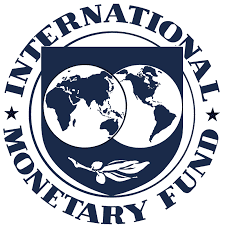 The International Monetary Fund has claimed that world growth has fallen to its lowest level since the Global Financial Crisis. The IMF has also pointed a finger at the two largest contributors to this decline as being uncertainty caused by Brexit (blame David Cameron) and US trade policies (blame Donald Trump).
The International Monetary Fund has claimed that world growth has fallen to its lowest level since the Global Financial Crisis. The IMF has also pointed a finger at the two largest contributors to this decline as being uncertainty caused by Brexit (blame David Cameron) and US trade policies (blame Donald Trump).
According to the IMF, global growth will weaken this year from its earlier projection of 3.2% to 3% (whilst 0.2% may not sound much, it represents roughly $0.16 trillion). In terms of the “developed” world, expansion will slip from 2.3% last year to 1.7% in the current year. The IMF is also predicting that the expansion of the US economy will slow from 2.9% last year to 2.4% this year as the impact of the economic boost from the 2017 tax cut peters out.
The UK economy is set to slow from 1.4% (2018) to 1.2% in the current year on the back of Brexit uncertainty and the shortfall in international investment in the UK economy which it has provoked.
The powerhouse economy of the EU, Germany, is likely to see growth drop by 1%from 1.5% last year to just 0.5% this year. Obviously, global trade disputes and Brexit factor in this decline, but a substantial part of it has been blamed on a downturn in German car production.
China has been the major focus of the Trumpian trade war and its economy is due to shrink from 6.6% to 6.1% - still a phenomenal rate of expansion if the data is to be taken at face value. The Chinese economy is the second largest in the world and worth an estimated $13.4 trillion (although recent studies claim this figure to be inflated).
The IMF thinks that “cheap” money from world central banks has helped to offset the slowing of the global economy by 0.5%, the report noting: “With central banks having to spend limited ammunition to offset policy mistakes, they may have little left when the economy is in a tougher spot. Policy missteps at this juncture, such as a no-deal Brexit or a further deepening of trade disputes, could severely undermine sentiment, growth, and job creation. The foremost priority, in many cases, is to remove policy-induced uncertainty or threats to growth."
The report is unlikely to receive a warm welcome in either 10 Downing Street or The White House, of course.
